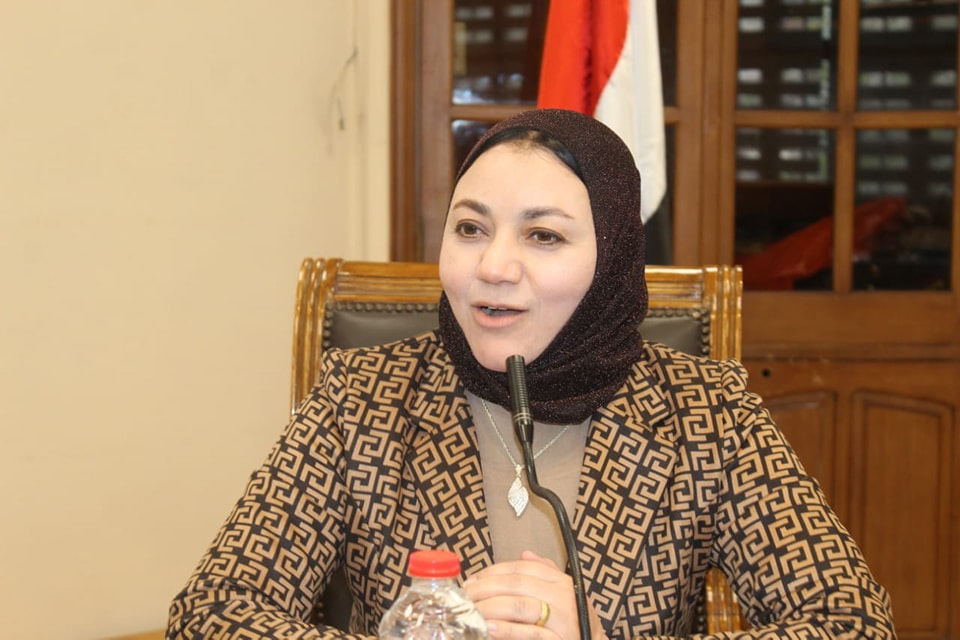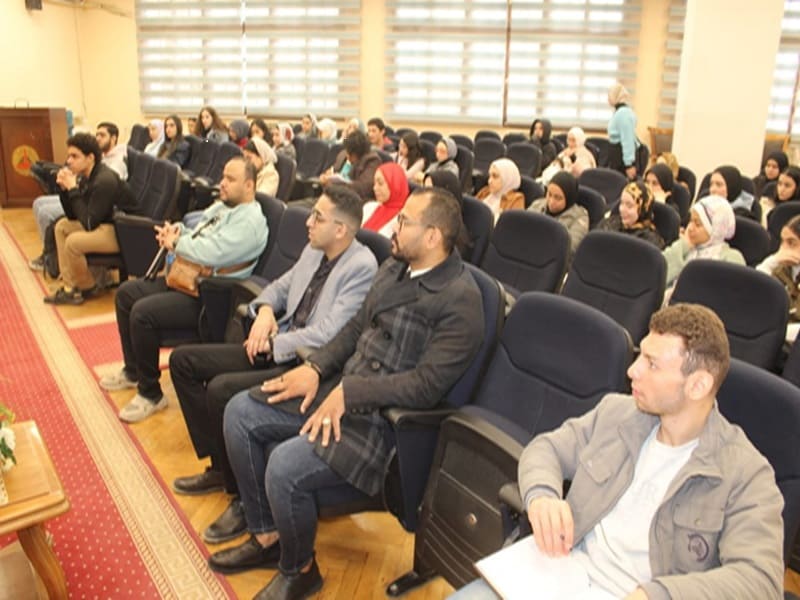Drug addiction is a waste of human capital and an obstacle to sustainable development... A symposium at the Faculty of Arts
The Faculty of Arts, Ain Shams University, represented by the Community Service and Environmental Development Affairs Sector, organized a symposium entitled “Drug addiction is a waste of human capital and an obstacle to sustainable development,” under the patronage of Prof. Mohamed Diaa Zein Al-Abidin, President of Ain Shams University, Prof. Ghada Farouk, Vice President of the University for Community Service and Environmental Development Affairs, Prof. Hanan Kamel, Dean of the Faculty of Arts, under the supervision of Prof. Hanan Salem, Vice Dean of the Faculty for Community Service and Environmental Development.
Dr. Hanan Salem, lectured at the symposium and stressed the importance of highlighting the phenomenon of drug abuse and raising awareness of its dangers to the individual and society and the necessity of creating social, cultural and health awareness of its harms and modifying individuals’ attitudes and behaviors with the phrase “You are stronger than drugs.”

She pointed out that development is the optimal exploitation of material and human resources. All countries of the world care about human resources and seek to improve them.
Her Excellency reviewed the topics of the symposium, which included problems that represent an obstacle to development, and one of these problems is “drugs,” noting that the largest trade in the world after weapons is drugs, which are a major source of money laundering, as it is a global phenomenon that crosses continents.
She also stressed that drugs are a multi-faceted phenomenon, which are social, economic, political, and security, pointing out that among the causes of drug addiction are personal, familial, social, psychological, and economic reasons.
Regarding the subjective reasons, she explained that they are the beliefs of the addict in which he justifies the reasons for his use of drugs, and they are represented by improving the mood, as he believes that they increase sexual ability, and make him not feel bored and lonely.
As for family factors, the corruption of the family climate, the family rift (physical and psychological), and the severity of the violence practiced on children (excessive cruelty) contribute to addiction, as well as social factors such as (ignorance, bad company, the presence of gangs). All of this constitutes a danger to the individual’s behavior and helps addiction to be overcome. on him.
She explained that psychological disorders such as (excessive whims and excessive repression) are a mistake that leads to deviation, which requires the presence of an internal balance. Likewise, economic factors such as unemployment, poverty and lack of family resources make the addicted person steal to use drugs, and the increased income also helps in drug abuse.
Prof. Hanan Salem pointed out that one of the effects of addiction is the collapse of family ties, changing the nature of basic roles, especially if the addict has one or both parents, and drug addiction also disrupts the energies of young people, eliminating them as they are the first group targeted in the fourth and fifth generation wars related to the disruption of society from within and destabilizing religious constants and tampering with the value system (which is an essential pillar in building civilization).
Prof. Hanan Salem discussed the mechanisms of confrontation, which are working to prevent the leakage of narcotic substances into the country, increasing punishment for drug traffickers, and filling the loopholes in the law, which they implement with impunity, as well as filling the youth void and providing opportunities to grow their skills and enhance their capabilities.
She stressed that medical treatment should not be limited to medical treatment, but rather it must be completed with psychological and social rehabilitation so that the addict or recovering person does not relapse, and awareness programs should be conducted for youth on an ongoing basis about the dangers of drugs.


.svg)




